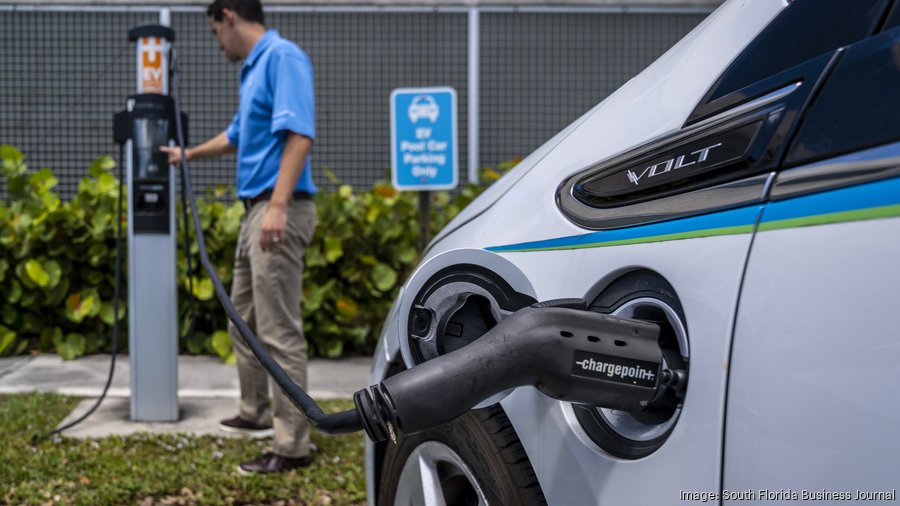Listen to this article 3 min
An Austin startup has received a $5.8 million grant from the California Energy Commission to install at least 446 electric vehicle chargers in downtown Oakland.
Flash, a company whose core business is providing technology products and services to parking lot operators, will have the first batch of chargers online in six months and expects to complete between 446 and 500 chargers by the end of 2025.
The chargers will be installed in a 1.5 mile radius of downtown Oakland at parking lots that are already clients of Flash.
"I think this will cover downtown Oakland really well and give drivers confidence that they can pull into the significant number of facilities in that area and not have to worry about finding a destination charger or fast charger somewhere else during their journey or during your day," said Matt McCaffree, vice president of utility market development at Flash.
Oakland was chosen by Flash and its California grant issuer due to the relative dearth of chargers downtown compared to San Francisco, which has invested heavily in its charging network. The grant will cover 75% of the cost of installing the chargers, while Flash will contribute the remaining 25%.
Flash will use Level 2 EV chargers manufactured by Taiwan-based Zerova Technologies. EV charging comes in three levels: Level 1, plugging a cord into a normal wall socket, requires a day or more to fully charge. On the other end of the scale, a Level 3, such as a Tesla Supercharger, can fully charge most EVs in well under an hour.
Level 2 chargers are a bit slower than Level 3, charging the typical vehicle in four to eight hours, but put significantly less strain on the power grid. The Zerova models that will be installed in Oakland can charge 30 to 60 miles of power in an hour.
"Level 2 charging makes sense for when cars are at parking lots and sitting idle," McCaffree said. "But it also makes a lot more sense from a utility perspective and the type of investment and infrastructure that's required, which ultimately means that it's better for ratepayers and PG&E customers that won't have to burden a heavy load."
The grant is part of the California Energy Commission's Convenient, High-Visibility, Low-Cost, Level 2 Charging (CHILL 2) program, which has a total budget of $24 million and aims to "improve public awareness in Level 2 charging (and) provide charging access in low income areas."
Flash was founded in 2011 and has received $367 million in funding at a $1 billion valuation. The company has partnered with Google to allow users of Google maps to book parking spots on the app.
The Austin company isn't the only EV charging installer with its eyes on Oakland. San Francisco-based EV Realty recently announced it was developing a public fast-charging project in downtown Oakland with East Bay Community Energy, expected to begin later this year.
Austin employees
| Rank | Prior Rank | Company name (Prior rank) |
|---|---|---|
1 | 1 | Tesla Inc. |
2 | 2 | Dell Technologies Inc. |
3 | 3 | Amazon |





